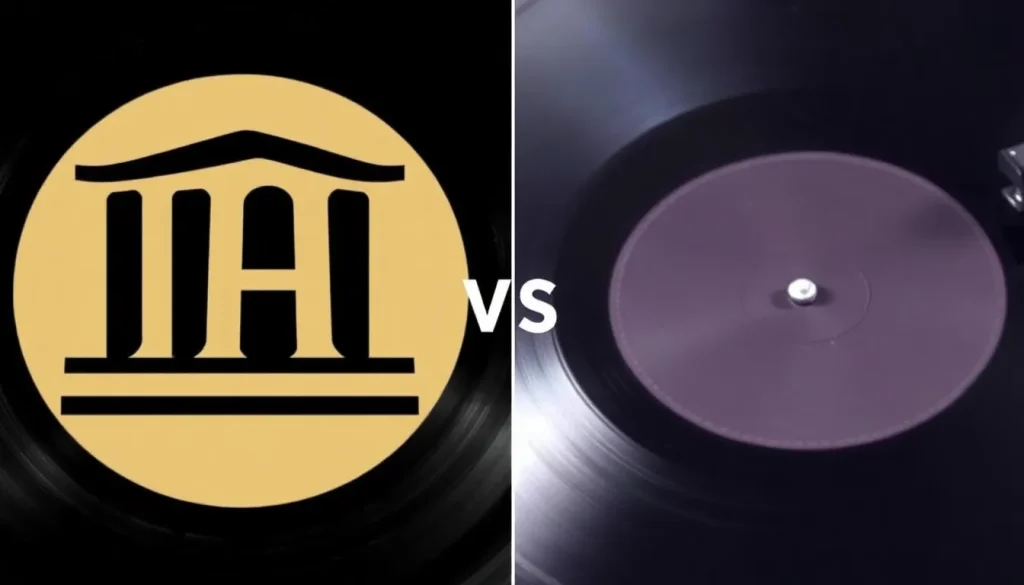Internet Archive vs Record Labels Dispute Over Vinyl Preservation Ends

The clash between digital preservation and copyright laws has never been more pronounced than in the recent legal battle between Internet Archive and major record labels. This high-stakes conflict not only raises questions about the future of music preservation but also highlights the complexities of intellectual property in the digital age. Let's delve deeper into this intriguing case and its implications for both the music industry and digital archive efforts.
Overview of the legal dispute
After more than two years of contentious legal proceedings, Internet Archive, a nonprofit digital library, has reached a settlement with a coalition of record labels spearheaded by Universal Music Group and Sony Music Entertainment. This settlement pertains to a lawsuit regarding the digitalization of historical recordings, specifically those from the era of 78 RPM records. The resolution of this dispute was announced through a brief statement on Internet Archive's official blog.
While the details of the agreement remain shrouded in confidentiality, it has been confirmed that both parties will refrain from making any further public statements. The lack of clarity regarding the terms raises questions about the future of the initiative aimed at preserving ancient recordings, a project crucial for cultural heritage.
Background of The Great 78 Project
The Great 78 Project was launched with the noble goal of preserving a vast array of music from the early 20th century, which exists only on fragile 78 RPM records. This initiative aimed to digitize thousands of songs, thus safeguarding them from potential loss. However, it quickly attracted the ire of record labels who alleged that the project was essentially a guise for piracy, infringing on their copyrights.
- The project focuses on music recorded prior to 1972, which often falls into a gray area of copyright law.
- Record labels claimed that the digitization represented an illegal reproduction of their works.
- Notable artists included in the dispute were Miles Davis, Ella Fitzgerald, Frank Sinatra, and Louis Armstrong.
The record labels argued that the project constituted a massive infringement of their rights, leading to the court case that has now been resolved. The stakes were particularly high, with claims for damages reaching as much as $150,000 per song, totaling an estimated $400 million based on the volume of affected recordings.
Details of the settlement
While the specifics of the settlement between Internet Archive and the record labels have not been disclosed, the resolution has led to a request for the court to lift upcoming deadlines related to the case. This indicates that some form of compliance is needed, although the exact nature of that compliance remains unknown.
The court document indicates that both parties have agreed to a confidential resolution to the claims, leaving many to speculate about the future continuation of The Great 78 Project.
The implications of the settlement
The resolution of this lawsuit may set a significant precedent for how digital archives can operate within the confines of copyright law. The impact on Internet Archive and similar organizations could be profound:
- Potential restrictions on digitizing and distributing works that are still under copyright.
- A chilling effect on similar projects aimed at preserving cultural heritage.
- Increased scrutiny from record labels on future digital archiving efforts.
Despite the uncertainties, it appears that the project aimed at preserving old records is still active, though it is unclear if this is conditional on adhering to any particular requirements established during the settlement.
The future of digital preservation
As digital technology continues to evolve, the tension between copyright and preservation efforts will likely intensify. The case between Internet Archive and the record labels serves as a stark reminder of the complexities involved in safeguarding our cultural heritage.
With ongoing debates regarding copyright reform, advocates for digital preservation argue that necessary changes must be made to protect cultural artifacts from being lost to time or legal battles. The future of projects like The Great 78 Project may hinge on the ability to navigate these legal waters effectively.
Public perception and support for digital archives
Public interest in preserving historical records remains robust, but such legal disputes often create a divide in opinions. For many, the preservation of cultural artifacts is of utmost importance, while others emphasize the rights of creators and their estates:
- Supporters argue that digital archives play a crucial role in maintaining cultural memory.
- Opponents often cite the need for copyright enforcement to protect artists’ rights.
- There's a growing call for clearer laws that balance the rights of copyright holders with the need for public access.
In this context, educational institutions, libraries, and similar organizations must advocate for better frameworks that support both preservation and intellectual property rights.
To further explore this topic, you can watch a relevant discussion on copyright issues in the digital age here:
The conversation surrounding internet archives and copyright is far from over. As technology advances and our understanding of intellectual property evolves, the future of projects like The Great 78 Project will be pivotal in shaping how we preserve and access our cultural heritage.




Leave a Reply